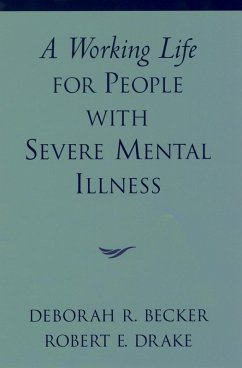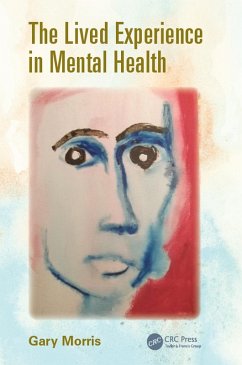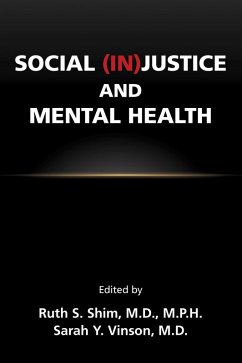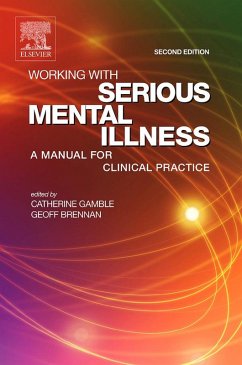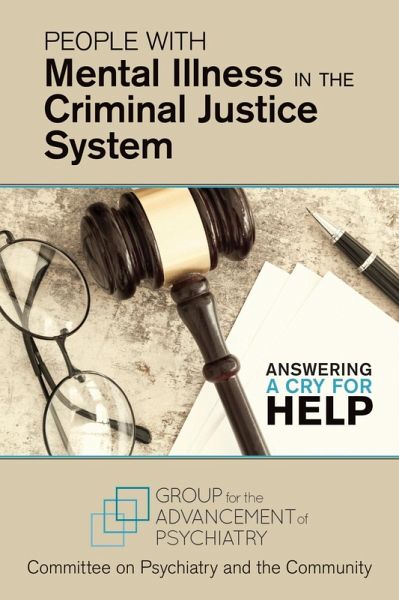
People With Mental Illness in the Criminal Justice System (eBook, ePUB)
Answering a Cry for Help

PAYBACK Punkte
9 °P sammeln!
Written by a committee of the Group for the Advancement of Psychiatry, People With Mental Illness in the Criminal Justice System: Answering a Cry for Help represents the collective wisdom of leaders in community psychiatry and is the third in a series of successful publications that have used Dear Abby letters as source material. The letters, submitted by readers with experience with mental illness and the criminal justice system, constitute a rich, real-world repository for the case stories presented in this fascinating volume. Using the experiences shared in the letters, the authors employ t...
Written by a committee of the Group for the Advancement of Psychiatry, People With Mental Illness in the Criminal Justice System: Answering a Cry for Help represents the collective wisdom of leaders in community psychiatry and is the third in a series of successful publications that have used Dear Abby letters as source material. The letters, submitted by readers with experience with mental illness and the criminal justice system, constitute a rich, real-world repository for the case stories presented in this fascinating volume. Using the experiences shared in the letters, the authors employ the Sequential Intercept Model to present a series of chapters offering detailed recommendations for psychiatrists, group practices, and criminal justice entities on partnering with individuals who are at risk and their families, with the goal of improving outcomes.
The book's many features and functions make it relevant to a diverse audience: ¿ The Dear Abby letters on which the book's stories are based are heartfelt and human, providing a depth of emotion and understanding that cannot be found elsewhere, and the down-to-earth writing style and real-world material are designed to be useful and compelling to both practitioner and layperson.¿ The case-based recommendations for effective interventions are very specific and practical to promote and enhance clinical skill development. ¿ A robust set of appendices presents information for professionals on a variety of critically important topics, including principles for criminal justice and community psychiatry; sequential intercept mapping; stages of engagement with the criminal justice system; HIPAA regulations; screening and mental status/criminal justice history; essential systems of care; and the risk-need-responsivity model.¿ An extensive section of criminal justice/mental health online resources addresses areas such as law enforcement, courts, corrections, evidence-based practices, veterans, organizations, and miscellaneous topics, providing avenues of information and assistance for individuals, families, and clinicians.
This simple, evidence-based guide challenges psychiatrists to initiate changes in their clinical work; in the operation of their agencies, programs, and teams; and in their partnerships with local criminal justice and behavioral health providers to positively impact people with behavioral health conditions in the criminal justice system. Implementing the approaches described so eloquently in People With Mental Illness in the Criminal Justice System: Answering a Cry for Help can potentially reduce the overrepresentation of people with mental illnesses in justice settings, provide alternatives to incarceration, and divert individuals who do not pose a public safety risk from jail.
The book's many features and functions make it relevant to a diverse audience: ¿ The Dear Abby letters on which the book's stories are based are heartfelt and human, providing a depth of emotion and understanding that cannot be found elsewhere, and the down-to-earth writing style and real-world material are designed to be useful and compelling to both practitioner and layperson.¿ The case-based recommendations for effective interventions are very specific and practical to promote and enhance clinical skill development. ¿ A robust set of appendices presents information for professionals on a variety of critically important topics, including principles for criminal justice and community psychiatry; sequential intercept mapping; stages of engagement with the criminal justice system; HIPAA regulations; screening and mental status/criminal justice history; essential systems of care; and the risk-need-responsivity model.¿ An extensive section of criminal justice/mental health online resources addresses areas such as law enforcement, courts, corrections, evidence-based practices, veterans, organizations, and miscellaneous topics, providing avenues of information and assistance for individuals, families, and clinicians.
This simple, evidence-based guide challenges psychiatrists to initiate changes in their clinical work; in the operation of their agencies, programs, and teams; and in their partnerships with local criminal justice and behavioral health providers to positively impact people with behavioral health conditions in the criminal justice system. Implementing the approaches described so eloquently in People With Mental Illness in the Criminal Justice System: Answering a Cry for Help can potentially reduce the overrepresentation of people with mental illnesses in justice settings, provide alternatives to incarceration, and divert individuals who do not pose a public safety risk from jail.
Dieser Download kann aus rechtlichen Gründen nur mit Rechnungsadresse in A, D ausgeliefert werden.








